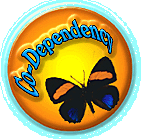


"Getting Through The Cycle"
"Recyling can mean a momentary lapse into our old behaviors. Or recycling can lead to more serious problems: depression, use of mood-altering chemicals to cope, or physical illness. Codependency is progressive; recycling can be too. We can get stuck, spin ourwheels, then discover we've gotten ourselves more deeply entrenched in the muck.
Whether our recycling experience lasts six minutes or six months, our instinctive reaction is usually one of denial, shame, and self-neglect. That's not the way out. That's the way in more deeply.
We get out of, or through, a recycling process by practicing acceptance, self-compassion, and self-care. These attitudes and behaviors may not come as effortlessly as denial, shame, and neglect. We've spent years practicing denial, shame and neglect. But we can learn to practice healthier alternatives, even when it feels awkward. Some suggestions for doing that follow.
The first step toward getting through a recycling situation is identifying when we're in it. Here are some warning signs:
Emotions Shut Down: We may go numb and begin freezing or ignoring our feelings. We return to the mind set that feelings are unnecessary, inappropriate, unjustified, or unimportant. We may tell ourselves the same things about wants and needs. Compulsive Behaviors: We may begin compulsively eating, caretaking, Return to controlling, working, staying busy, spending money, engaging in sexual behaviors, or anything else we compulsively do to avoid feeling. Victim Self-Image: We may start feeling, thinking, talking, and Returns to acting like a victim again. We may begin focusing on others, or resort to blaming and scapegoating. A good clue that I'm "in it" is when I hear myself whining about how someone is doing this or that to me, or how awful something is. My voice begins to grate on my nerves. Self-Worth Drops: Our level of self-esteem may drop. We may get stuck in self-hatred or shame. We may become overly critical of ourselves and others. Perfectionism and feelings of not being good enough may return. Self-Neglect Starts: Neglecting the small and large acts of self-care that are a regular part of our recovery routine may indicate we're close to a recycling situation. Abandoning our daily routine is another sign. The Crazies Return: All the old crud can come back. This includes: return of anxiety and fear, feeling disconnected from people and our Higher Power; problems sleeping (too much or too little); mind-racing, feeling overwhelmed by confusion (or just overwhelmed); difficulty thinking clearly; feeling angry and resentful; feeling guilty because we feel that way, feeling desperate, depressed, deprived, undeserving, and unloved. We may get into the "overs": overtired, overworked, overcommitted, overextended, overly sensitive; or the unders: underpaid, underappreciated, underspent, underfed, and under-the-weather. A continuing physical condition can be a warning sign that something is nagging at our minds and emotions. We may begin withdrawing from and avoiding people. A return to martyrdom or the "endurance mode" is another warning sign. This would include resuming the belief that we can't enjoy life or have fun today, this week, or this month; life is something to be "gotten through", and maybe next week or next year we can be happy. Trapped!: Feeling trapped, believing we have no choices, is a highly suspect attitude. Not That Again: It's possible to progress to the danger zone during recycling. Symptoms here include chronic physical illness, chemical dependency, chronic depression, or possible fantasies about suicide.
After we've identified a return to our old ways, the next step is simple. We say, 'Oops! I'm doing it agian'. This is called acceptance and honesty. It's helpful to return to concepts like powerlessness and unmanageability at this time. If we're working a twelve steps program, this is a good tme to work Step One. This is called surrender. Now comes the potentially difficult part. We tell ourselves, It's okay, I did it again This is called self-compasssion.
"Recycling Myths"
Believing any of the following myths about recycling may make recovery more difficult that necessary.
*I should be further along than I am. *If I've been recovering for a number of years, I shouldn't be having problems with this anymore. *If I was working a good program, I wouldn't be doing this. *If I'm a professional in recovery, mental health, or general helping field, I shouldn't be having this problem. *If my recovery was real, I wouldn't be doing this. *People wouldn't respect me if they knew I thought, felt or did this. *Once changed, a behavior is gone forever. *I couldn't possibly be doing this again. I know better. *Oh, no! I'm back to square one.These are myths, if we believe them, we need to try to change what we belive. It's okay to have problems. It's okay to recycle. People who work good programs and have good recoveries recycle, even if they're professionals. It's okay to do "it" again, even when we know better. We haven't gone all the way back to square one. Who knows? We may learn from it all this time.
If we insist on blaming or feeling ashamed, we can give ourselves a limited time to do that. Five to fifteen minutes should be enough."
"Toxic Shame" "Recycling Tips" "Taking Care Of Ourselves" Main Coda Page Soul's Self-Help
as of September 24, 2000